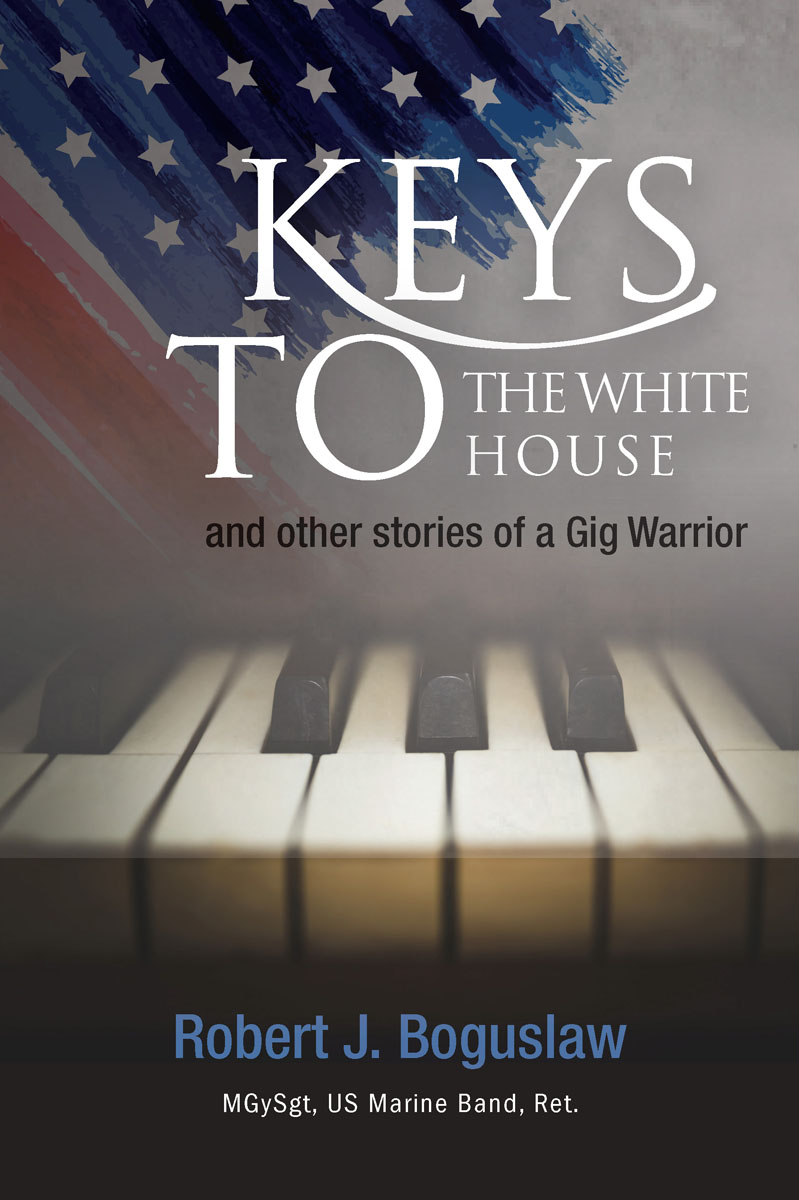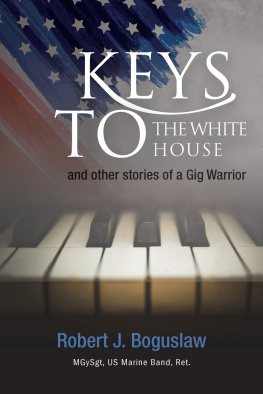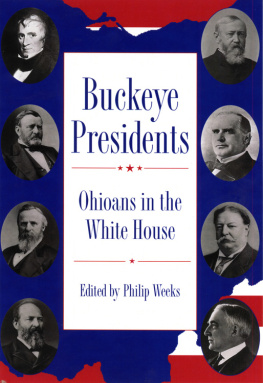
Keys to the White House and Other Stories of a Gig Warrior
By Robert Boguslaw
Copyright 2020 Robert Boguslaw
All rights reserved
ISBN-13: 978-1-951492991-16-95
ISBN- eBook: 978-1-951492-11-3
Library of Congress case no._1-8603647601
Published by HigherLife Development Services, Inc.
PO Box 623307
Oviedo, Florida 32762
(407) 563-4806
www.ahigherlife.com
No part of this book may be reproduced without written permission from the publisher or copyright holder, nor may any part of this book be transmitted in any form or by any means electronic, mechanical, photocopying, recording, or other, without prior written permission from the publisher or copyright holder.
This book is sold with the understanding that the subject matter herein does not constitute professional advice for any specific individual or situation. Opinions in this book are the authors own and dont necessarily represent the publisher.
Author takes all responsibility in obtaining certain copyright permission.
White House photos in public domain. https://www.archives.gov/presidential-libraries
Warning: This title may contain language that may not be suitable for all audiences.
Recording copyright held by author
Printed in the United States of America
10 9 8 7 6 5 4 3 2 1
Second Edition
ABOUT THE AUTHOR

ROBERT BOGUSLAW is a pianist, composer, educator, and free-lance performer in the Baltimore-Washington, DC region. He leads the Rock Creek Trio in classical music performance. In the area of jazz, he heads The Way, a jazz ensemble performing his original compositions. From 1991 to 2013, he served as staff pianist and combo section commander with the Presidents Own Marine Band, a unit of the USMC. Boguslaws artistry emerges through the performance of numerous musical genres, including classical, jazz, blues, folk, pop, musical theater, and world music. He has performed throughout the United States, Caribbean, in South America, and Europe. Currently, he resides in West Friendship, Maryland, with his wife, two of three daughters, and a granddaughter, Phoenix.
TABLE OF CONTENTS
FOREWORD
One important life event that motivated Bob to write this book was the loss of a dear friend and jazz aficionado, Dennis Askey. When Dennis passed away, we lost a great jazz historian along with his stories of encounters with jazz masters, stories worthy of sharing. Like Dennis, Bob offers first-hand accounts of historic events and encounters with political and cultural icons, particularly during his service in the Presidents Own US Marine Band at Marine Barracks, Washington, DC. There he served for twenty-two years during the administrations of Presidents George H. W. Bush, Bill Clinton, George W. Bush, and Barack Obama. Bob was pianist to heads of state, presidents, popes, and pundits. I sometimes imagine him as a Forrest Gump character, standing shoulder-to-shoulder with world leaders and celebrities at historic moments.
There are some who hold the value of his military service in low esteem. Some of the young recruits assigned to Marine Barracks Washington, DC resent these military musicians who enter the Marine Corps in a separate system of rank and promotion. They do not consider the musicians real marines. To them, being a marine is about defending our country. What does music performance have to do with national defense?
We once visited an attorneys office who asked about Bobs profession. What line of work are you in? When Bob told him that he was a pianist in the Presidents Own, the attorney scoffed and remarked, Our tax dollars at work. Some folks dont believe that US taxpayers should pay for a pianist or any kind of music. What does that have to do with the national defense?
The ceremonial aspect of our military is largely the function of military musical performing organizations. The Marine Band is always present at inaugurations, events of state, ceremonial parades, and military funerals. They were present with President Lincoln at Gettysburg. Their music has ignited the spirit with pride and joy, compassion and sorrow, respect and tribute throughout the events of American history.
While others commit brains and brawn to the mission, military music commits the mind and heart. At events of state, receptions of world leaders, and treaty and bill signings, music performs a diplomatic function. Music is present, whether in celebration or easing the spirit when tensions are high among the seats of power around world events. Military music provides the atmosphere for nations to convene.
No matter how you feel about the worth and value of these intangible, ceremonial and diplomatic services, Bob was fully committed, fully qualified, fully trained, armed and ready. He served with honor and relates his story with humility and a sense of humor. I believe that you, the reader, will find these stories of a gig warrior highly entertaining.
Mary Boguslaw
INTRODUCTION
My primary motivation to write Keys to the White House was my desire to pass these stories down to my children, grandchildren, and the generations to follow. My hope is theyll be able to someday read this book and say, This is what Dad did, or what Grandpa did. This is important to me because of whats probably a nearly universal human impulse to pass on a legacy to ones family. Secondly, in this book, Ive documented what life was like for both a gigging musician and a member of the Presidents Own Marine Band in the late twentieth and early twenty-first centuries.
Ever since 1975, when I began studying at the University of Miami, Ive heard musicians commiserating that live music is dying. I recently went to a sold-out Dave Matthews Band Concert, a world-class Baltimore Symphony performance of Mahlers 1st Symphony, and soloed with the Gettysburg College jazz band for an audience of approximately 500. There were large and enthusiastic audiences for each performance, and I suspect that if live music were really dying, itd be dead by now.
But I do believe that changes in the way we purchase, access, and even perceive music these days are causing the decline of the Gig Warrior lifestyle. Listeners can now freely access any recorded music, getting whatever theyve chosen to listen to recorded and played back with very high quality and fidelity. Hand-held devices have also made divided attention spans commonplace. These factors have made the corner bar or nightclub with a cover band or lounge act nearly obsolete. So, although I believe that in the twenty-second century there will still be live concerts attended by large and enthusiastic audiences, I also believe it will be difficult for future generations to comprehend the lifestyle of freelance musicians today. In the same way that we have to do research to understand the silent movie pianists and song pluggers of the early twentieth century, my hope is that this book will help with a historical understanding of the gig warrior lifestyle.
Before the reader dives into this memoir, theres one thing I feel I need to be very clear about. Playing piano for the Presidents Own was a truly wonderful career and Im very fortunate, blessed, and grateful to have been able to spend a substantial part of my professional life doing so. I currently have, and have always had, a tremendous amount of respect for the institution and history of the Marine Band. In my twenty-two years of military service, I also developed a great respect for the Marine Corps and the men and women whove chosen to spend their lives serving our country.
Next page












